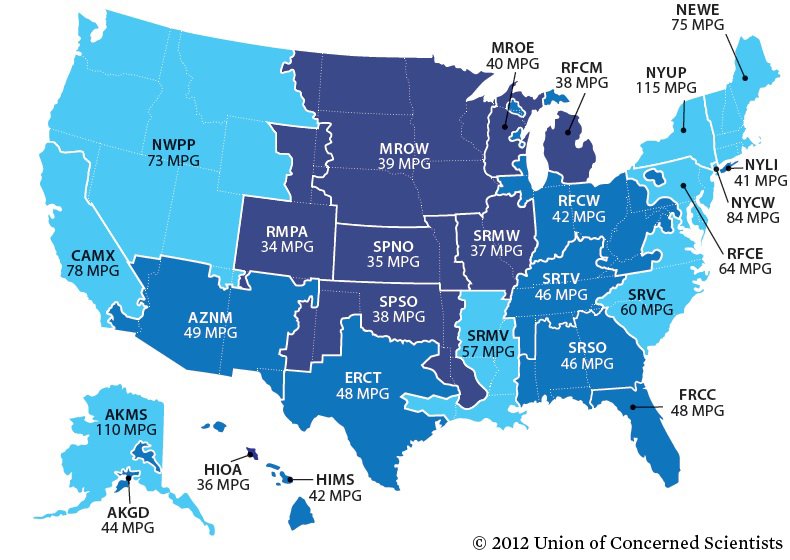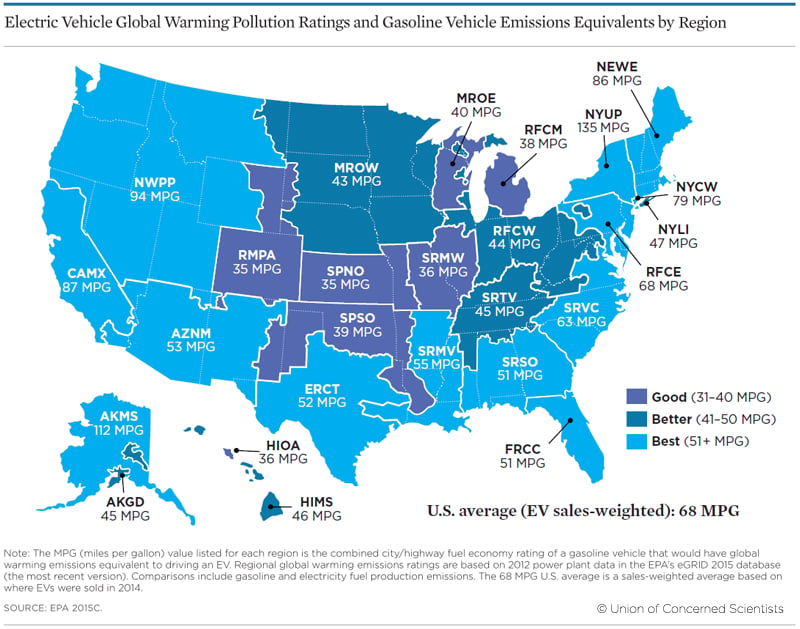1. As grid power gets cleaner, an EV will get cleaner. An ICE (internal combustion engine) car is cleanest when new and gets dirtier as it ages. Most comparisons you see make the assumption that the ICE car remains at the new level.
2. EVs don't pollute where people live and breath. It's easier to control the pollution from a few large sources (power plants) than it is from millions of small sources (cars).
3. Many EV owners install solar panels. Even if you don't, you can still purchase 100% renewable energy plans from most electric providers. This puts as much electricity as you use in the grid in the form of renewable energy (even if the actual electrons you use may or may not be from renewable sources). It also sends a message to the utility company--money talks, well you know the rest of the line.
4. There is a plan for Tesla to put in enough solar panels to more than cover the SC usage. Right now the emphasis is on build-out, so that won't happen for a few years, except in some cases, but the mission is for sustainable transportation, and the recent unveiling of the Model 3 indicates just how serious Tesla is about it.
5. About the worst the detractors can come up with is that in states like West Virginia where power is 97% coal, the Prius is really the only car that is better than an EV in terms of CO (not in terms of other types of pollution). Thinking about it, the Prius is not a 2400 kg premium sports sedan, so you have to give up a lot to get ICE technology that's even close to EV technology.
6. Once you drive a Tesla for a month, driving your current car will seem similar to driving a tractor.




